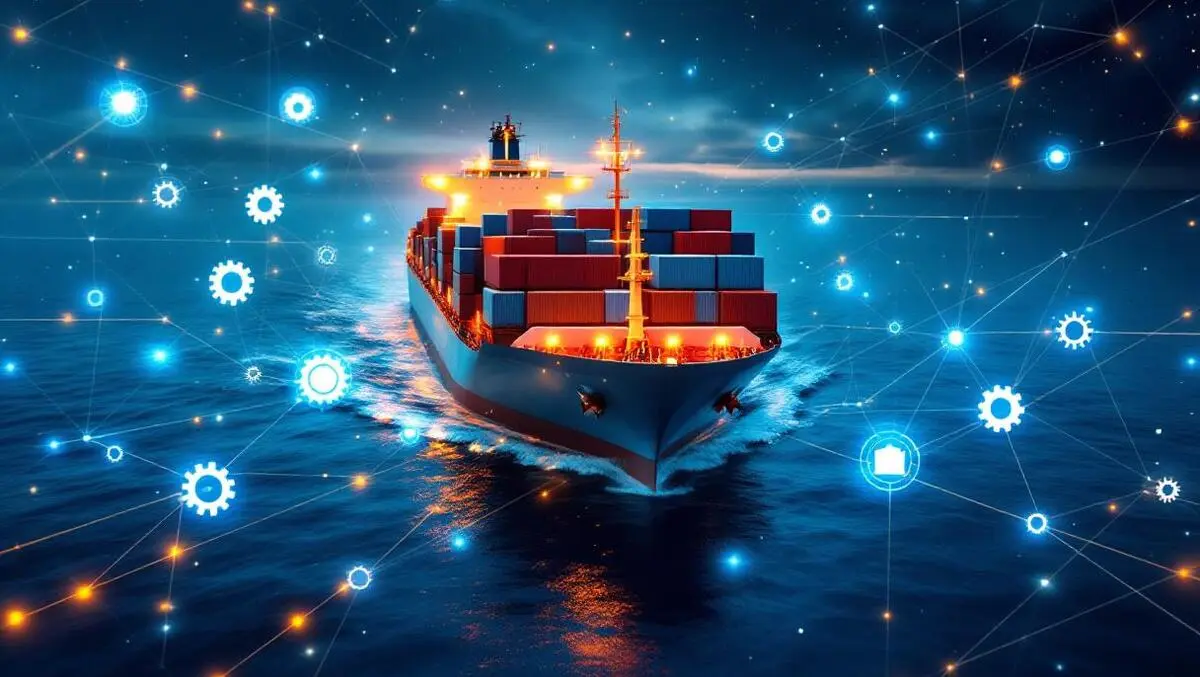
Maritime firms upbeat on AI yet struggle to scale beyond pilots
New research shows that maritime companies are struggling to scale artificial intelligence (AI) beyond pilot projects despite broadly positive attitudes towards the technology.
The report, titled "Beyond the Hype: What the maritime industry really thinks about AI," surveyed over 130 maritime professionals and included in-depth interviews to gauge the sector's current views on AI adoption. It found strong optimism alongside practical barriers and reservations, resulting in slow progress from trial phases to wider implementation.
Enthusiasm and caution
Among those surveyed, 82% expressed optimism about the role AI could play in the maritime sector. A similar proportion, 81%, said their organisation was already running pilot AI projects. The industry recognises the promise of AI for tasks such as reducing manual workflow inefficiencies, where 97% see benefits, and in charter party contract analysis, endorsed by 87% of respondents.
Despite this enthusiasm, only 11% of the companies surveyed have formal policies in place to guide the scaling of AI beyond pilot programmes. The study found that 37% of professionals had personally witnessed AI failures in their work, and 69% warned that AI solutions might miss critical red flags in contracts or voyage planning, potentially leading to poor business outcomes.
"A general AI agent might say that SF means standard form, but in shipping, it means stowage factor. Off-the-shelf solutions might automate basic processes, but they miss the nuanced context that maritime professionals rely on. That's why we've invested in building AI specifically trained on maritime data, language, and workflows rather than trying to adapt generic tools."
This was explained by Janani Yagnamurthy, Vice President of Analytics at Marcura, which partnered on the research project.
Human expertise still essential
The research found a strong preference for human oversight to be retained, with 70% of respondents believing that AI should provide recommendations while final decisions should remain with human professionals. Concerns about eroding expertise were evident, with 66% worried that overreliance on AI could undermine human skills and judgement.
"When change happens, it's very natural to fear losing control. Skilled maritime professionals have spent decades honing their judgement in high-stakes roles like chartering and operations. The best AI functions like a co-pilot, not a replacement, providing insights but always leaving the final decision up to the professional who understands the full context. As seen in some legal cases, relying on AI without human oversight can cause errors and even cross into professional misconduct," Yagnamurthy commented.
Sector-specific requirements
The study found that purpose-built, maritime-specific AI solutions are demonstrating more value than generic alternatives. As an example, Marcura's AI-powered charter party analysis technology enabled one dry bulk operator to avoid potential losses of over $120,000 by flagging missing clauses in a draft contract. Marcura claims its AI is embedded directly within maritime workflows and could be tailored to the industry's language and requirements, with data kept secure and separated for each client.
Respondents were broadly confident that AI has the potential to grasp the complexities of maritime contracts and operations, with 69% saying they were somewhat confident, but many agreed further development is necessary to address all industry-specific nuances. Nearly a quarter reported that vendor promises about AI often failed to align with real-world outcomes.
Barriers to scaling
The move from experimentation to wider deployment is being hampered by several factors. Inadequate training was cited by 38% as the single biggest barrier. Only 17% said their organisations had transparent processes for how AI makes decisions, pointing to a lack of governance as a major obstacle.
The survey also indicated that a governance gap persists in many organisations. While interest in AI remains high and pilot projects are common, formal strategies and frameworks for responsible scaling are lacking. Respondents noted the need for proper oversight and training as well as realistic expectations for what current AI systems can and cannot achieve in a maritime context.
The full report aimed to separate grounded concerns from less defined fears around AI, offering insight into the opportunities, challenges, and factors shaping AI adoption in the maritime sector.


